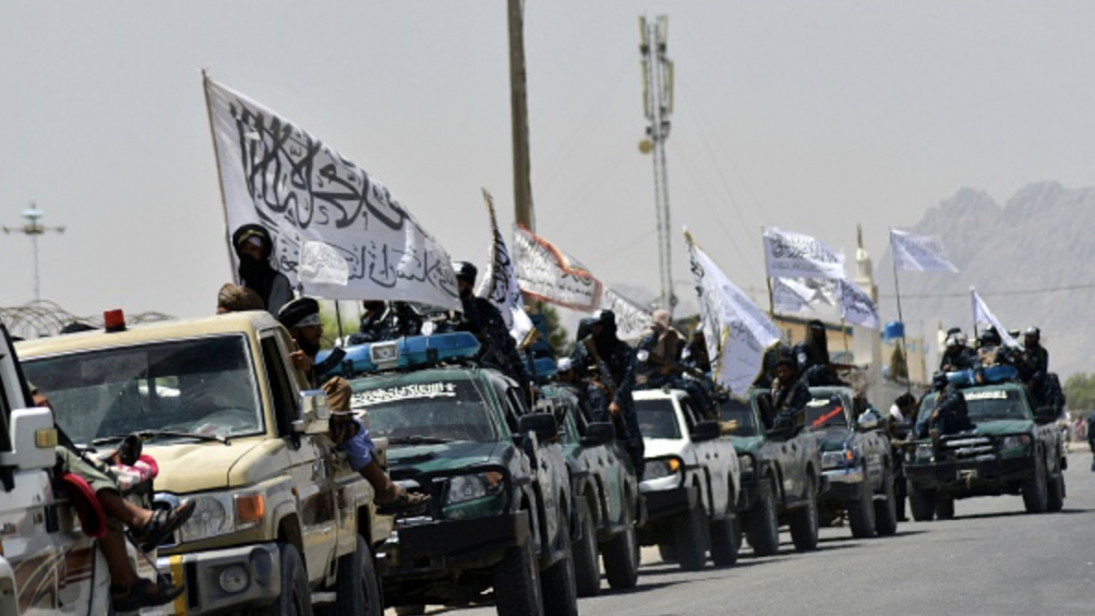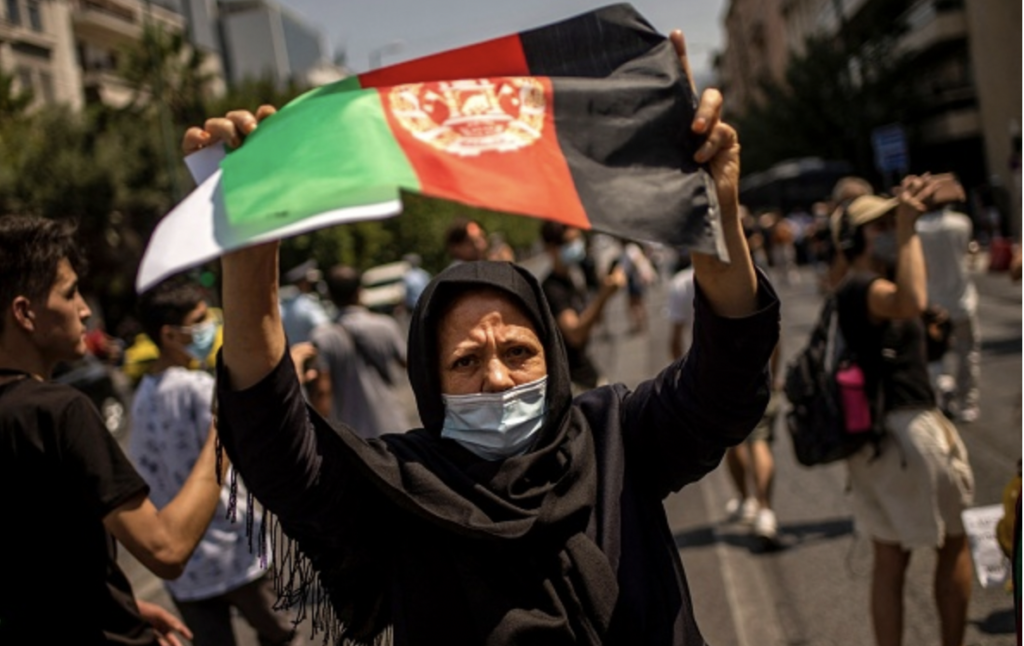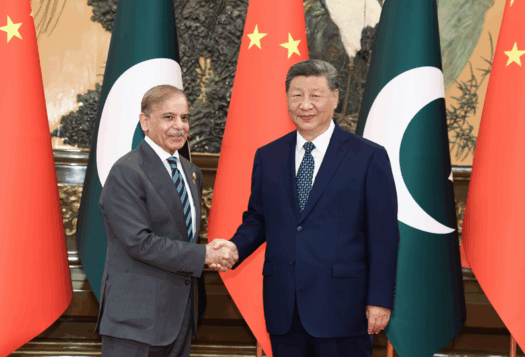
On August 15, 2021—exactly one year ago today—the Taliban captured Kabul and retook power in Afghanistan two decades after the United States and its allies toppled their previous regime. Their abrupt return to power shocked those within Afghanistan and abroad and brought a new sense of uncertainty about the county’s future at the hands of an insurgent group. Debates quickly arose about whether the Taliban had moderated since the 1990s, if the insurgent group had the capability to govern, and if Afghanistan under their rule could be a responsible member of the international community.
In the initial days of the takeover, the Taliban attempted to present themselves as a moderated force. They declared a general amnesty, promised to establish an inclusive government, pledged to respect the rights and freedoms of all Afghans, and committed to preventing Afghanistan from becoming a source of threat to the region and beyond. However, their subsequent actions and policies over the past year demonstrate that the group has learned little from history and is making the same mistakes. As a result, Afghanistan has become a pariah state with a collapsed economy and one of the world’s worst humanitarian crises and is once again becoming a safe haven for terrorist groups. As the Taliban is consolidating their regime, the developments over the past year indicate that their Islamic Emirate is likely to not only lead Afghanistan to instability and chaos but also turn the country into a destabilizing factor for the region.
A Taliban-ruled Afghanistan
One year after the Taliban’s return to power, the prospect of a Taliban-ruled Afghanistan seems dark and daunting. Thus far, the group has failed to establish an effective administration and is struggling to transition from an insurgent group into a functioning government.
As the Taliban is consolidating their regime, the developments over the past year indicate that their Islamic Emirate is likely to not only lead Afghanistan to instability and chaos but also turn the country into a destabilizing factor for the entire region.
Reneging on their earlier promises, the Taliban re-established their Islamic Emirate and formed a Taliban-exclusive government. Their cabinet members and senior officials, most of whom are religious clerics, lack expertise and have little administrative experience. They have also replaced educated bureaucrats with their unqualified fighters or loyalists and have ordered female government employees to stay home. As a result, ministries are not functioning properly and civil servants of the former government are struggling to work with their new masters.
Moreover, the Taliban’s Emirate has shown a lack of consideration for the suffering of the population. While almost half the population is experiencing high levels of acute food insecurity, the Taliban’s prime minister denies responsibility and declares that they had not promised to feed the population. Instead, the priority of the regime has been imposing extreme and harsh restrictions on the rights and freedoms of the citizens, especially women and girls, resulting in increased public resentment against the regime. Meanwhile, the Taliban regime has proved incapable of protecting the most vulnerable groups, especially Shiite Hazaras and Sikhs, against the attacks of the Islamic State-Khorasan Province (ISKP), which has expanded its presence since the Taliban takeover. According to the UNAMA report, during the first ten months of the Taliban rule, around 2,000 civilians have been killed and wounded as a result of the ISKP attacks across the country. The group has reportedly been growing in number and strength, thus posing an immense threat to the delicate stability of the country.
On the other hand, terrorizing the population and using violence to exercise control remain the main features of the Taliban’s approach. Knowing that their genuine-support base is limited, the Taliban identify any opposition to their regime as a rebellion and use any possible means to suppress it. To this end, they have imposed restrictions on freedoms of expression and peaceful assembly and used violence against protesters. The Taliban has also committed atrocities against civilians and grave human rights violations in repressing armed resistance in Panjshir, Baghlan, and Balkhab. Evidenced by the previous government’s mistakes that fueled the Taliban insurgency, these actions will further alienate the disaffected population, which may not only fuel armed resistance but also provide ISKP with new recruits.
The Taliban’s inability to govern has exacerbated the humanitarian crisis, increased public grievances, given rise to armed resistance, and contributed to the growing threat of ISKP. Their rule is likely to further destabilize Afghanistan and lead to political unrest, which will inevitably have negative impacts on the entire region’s stability.
Repercussions for the Region
While the Taliban are celebrating the first anniversary of their takeover, their regime has yet not been recognized by any country, including regional states. Seeking engagement with and recognition from the region and beyond, the Taliban have consistently and repeatedly committed that Afghanistan under their rule will be a responsible member of the international community, they will not harbor terrorist groups, and they will not allow any group to use Afghan territory against other countries. However, the developments during their one-year rule demonstrate that Afghanistan is once again turning into a safe haven for terrorist groups and a major source of threat for countries of the region.

According to the 30th report of the Analytical Support and Sanctions Monitoring Team, terrorist groups have increased their presence and enjoy freedoms of movement and activity—including operating training camps—in Taliban-controlled Afghanistan. Their members and fighters also reportedly hold positions in the Taliban’s government, are part of the Taliban’s combat units, and even command their fighting units. For instance, the Taliban has deployed Jamaat Ansarullah’s commander, Mahdi Arsalon, and his fighters along the border with Tajikistan, putting them in charge of the security of five districts.
The Taliban has consistently shown that they are unlikely to take action against these terrorist groups. They have maintained ties with foreign militants since their previous time in power, throughout their insurgency, and until now. Hosting al-Zawahiri in central Kabul indicates that if the Taliban are willing to harbor al-Qaeda leadership, whose very presence can cost them their recognition and survival, it is highly unlikely that they would cut ties with or take action against other terrorist groups. Besides the ideological affiliation, many factors have contributed to the consolidation of their relationship with terrorist organizations. Foreign militants have been fighting alongside the Taliban for decades, during which they have cultivated interpersonal relationships, including marital ties. They have also pledged allegiance to the Taliban’s supreme leader and have gained popularity among Taliban fighters. Therefore, any action against them will not only be considered a betrayal of the jihadi brotherhood but will also risk the Taliban’s internal cohesion and can lead to defections to ISKP.
ISKP is the only terrorist group that the Taliban are acting against. However, the Taliban have proved to be incapable of restraining its threat. Aiming to expand its activities from Afghanistan to the wider region, the group has shown to be able to launch rocket attacks from Afghanistan against its Central Asian neighbors, particularly Tajikistan and Uzbekistan. Although ISKP currently has limited capabilities, it has the potential to grow given its financial resources and the Taliban’s continued alienation of the population.
Future Destabilization
The presence of terrorist groups that enjoy the Taliban’s support in Afghanistan should be an alarming sign to the region. The Taliban have demonstrated again and again that they are willing to take risks over their support for other jihadi groups and former allies, and thus are unlikely to take action against them. As these groups view the Taliban takeover as an inspiration for replicating the group’s victory in their own countries, the consolidation of the Islamic Emirate of Taliban is likely to spread terrorism and Islamic radicalization in the region.
Countries of the region should be on the alert for its long-term implications while engaging with the Taliban for their short-term interests. Some regional states—such as Pakistan, China, and India—have been engaging with the Taliban regime with the hopes that the group can contain threats of the jihadist groups they are concerned about. In the short term, the Taliban might be willing to do so in exchange for certain demands, including recognition. However, apart from the fact that it will give the Taliban leverage over regional states, the Taliban have shown to be unwilling and unable to exercise control over foreign militant groups in the long term—especially when these groups enhance their capabilities to plan operations and launch attacks in the region. For instance, Pakistan has been supporting the Taliban since its inception. Yet the Taliban did not or could not prevent Tehreek-e Taliban Pakistan’s (TTP) pre-ceasefire attacks on Pakistan.
The Taliban have demonstrated again and again that they are willing to take risks over their support for other jihadi groups and former allies, and thus are unlikely to take action against them.
Whereas regional countries have approached recognizing the Taliban regime with caution, they need to refrain from any action that consolidates it. Also, while all regional states seem to be supportive of the establishment of a broad-based inclusive government in Afghanistan, they need to exert coordinated pressure on the Taliban. Lack of coordination will give the Taliban the space to use one state’s support as a shield against the pressure of the others.
Additionally, although al-Zawahiri’s killing demonstrated the success of “over the horizon” counterterrorism, to avoid another invasion, the United States should work with the European Union, the United Nations, and regional states to collectively pressure the Taliban for an inclusive governance, which may prove itself capable and willing to combat sources of instability. To prevent Afghanistan from fomenting trouble in the rest of the region, members of the international community, regional states, along with the United States, European Union, and UN agencies can work together to draw greater attention to human rights abuses and put pressure on the Taliban to move towards an inclusive government. Thus far, the Taliban has shown little indications that it is willing to change, however, accepting the current structure as is without continuing to place combined pressure on the Taliban for its governance failures, terrorism risks, and threats posed to minorities, poses far more risk in the long-term.
***
Click here to read this article in Urdu.
Image 1: Javed Tanveer via Getty Images
Image 2: Angelos Tzortzinis via Getty Images


